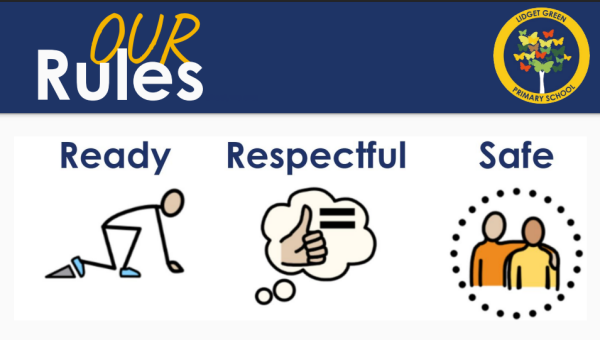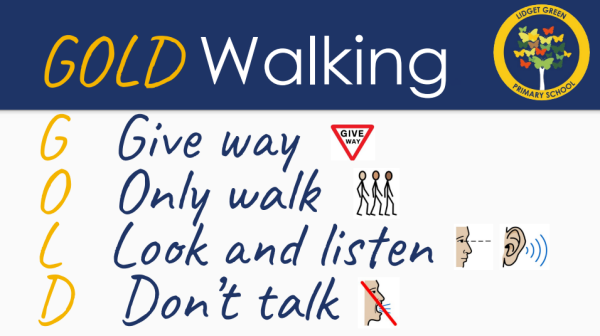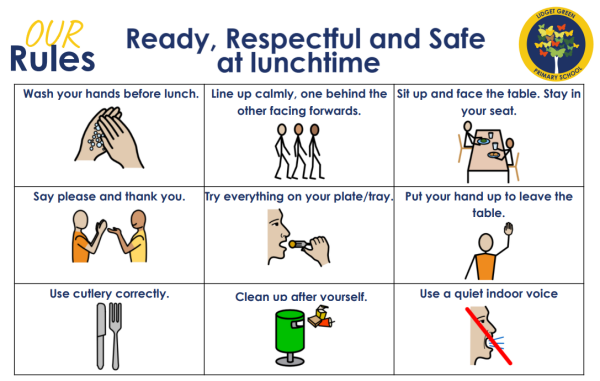Relationships & Behaviour
The school expects every member of the school community to behave in a considerate, cooperative and respectful way towards others. Pupils should be treated impartially and our Relationships Policy is applied in a consistent and attuned way.
It aims to help pupils to grow in a safe and secure environment, and to become positive, responsible and increasingly independent members of the school and the wider community. It is designed to recognise, encourage, and promote positive behaviour through the ongoing development of pupil emotion regulation.
School Rules
We have three simple school rules which are:
-
Ready
-
Respectful
-
Safe
Every behaviour intervention, positive or corrective, is related back to the child, asking them if they are being Ready, Respectful or Safe.
The lidget way to developing positive relationships



Positive Behaviour
Positive behaviour reflects our school values - inclusion, nurture and respect - and it is established through creating an environment where good conduct is more likely and poor conduct less likely. Good conduct is taught to all pupils, so that they understand what behaviour is expected and encouraged and what is prohibited.
Pupils are taught to:
-
To move appropriately in and out of the school building.
-
To walk on the left quietly down the corridor.
-
To line up facing forwards in a single file.
-
To hold doors open for others and visitors.
-
To keep their classrooms tidy.
-
To push their chairs under the table.
-
To clear their table at lunchtime.
-
At lunchtime/playtimes when the first whistle/bell sounds children should stop and on the second whistle/bell line up.
-
To take care of their own and schools’ equipment.
-
To be polite to adults and other children.
-
To support other children.
-
To empathise with each other.
-
To develop strategies to deal with upsetting or aggressive behaviour.
-
To report incidents of bullying behaviour involving themselves or others.
Adjustments can be made to routines for pupils with additional needs, where appropriate and reasonable, to ensure all pupils can meet behavioural expectations.
Emotion Coaching
Emotion Coaching is based on the principle that nurturing and emotionally supportive relationships provide optimal contexts for the promotion of children's outcomes and resilience. All staff have been trained in using emotion coaching techniques.
Children and young people who have received emotion coaching:
-
Achieve more academically in school
-
Are more popular
-
Have fewer behavioural problems
-
Have fewer infectious illnesses
-
Are more emotionally stable
-
Are more resilient

